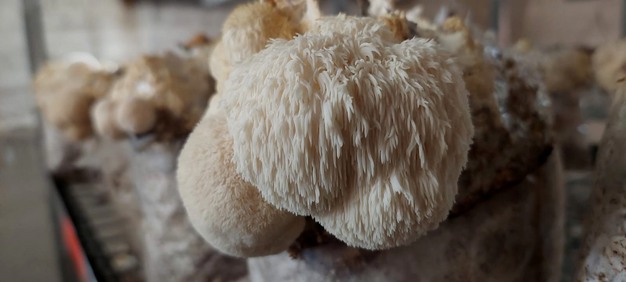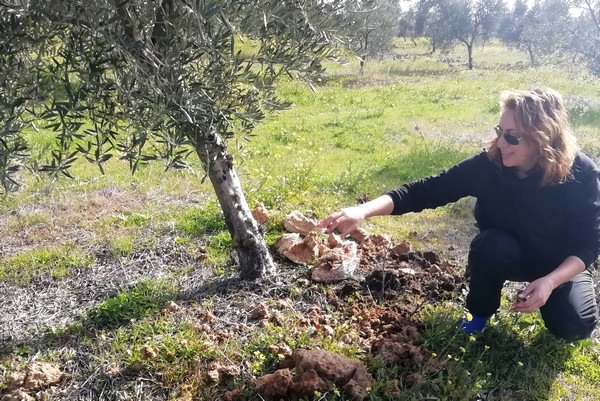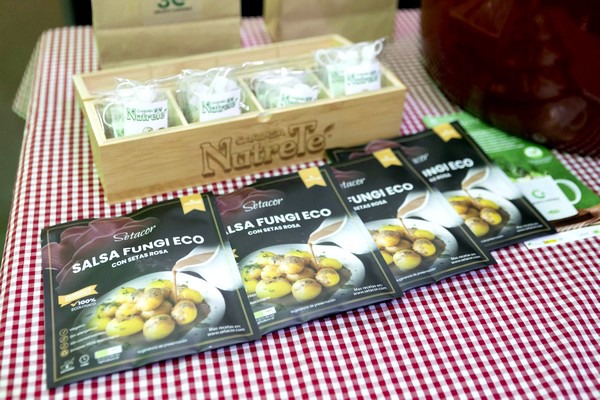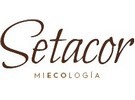The production of exotic mushrooms, and specifically that of Lion's Mane (Hericium erinaceus), is increasing as the popularity of this species, native to the northern hemisphere, continues to grow. "This year's harvest has been delayed by the heat. During the incubation phase, temperatures should not exceed 20-25 degrees Celsius, but Cordoba recorded more than 40 degrees, which caused the inoculum in some of the growing bags to burn," said Maria Rosas Alcantara, of Setacor, a company specialized in the organic production of exotic mushrooms. "However, the mycelium was very healthy and reinvaded the bags, and we are currently having a strong production of Lion's Mane."

"When it comes to mushrooms, and fungi in general, the market is becoming increasingly polarized," said Maria. "The Horeca channel is focusing more and more on affordable species, such as regular mushrooms and oyster mushrooms, while the gourmet segment of the catering industry, and especially end consumers, are betting heavily on novelty mushrooms. which is where Lion's Mane falls in. This mushroom first arrived in Spain through herbalist stores, given its medicinal properties, and now it is gaining ground in the fresh market, where it has positioned itself as a very interesting option due to its flavor and texture."
"As regards consumer trends, we see consumption moving away from large retailers and even organic chains. Many people now prefer to go directly to the producers, which is very satisfactory for me, because it gives me the chance to have a closer connection to the customers. In fact, I would say that exotic mushrooms have not embraced the large-scale distribution model and are distributed in much shorter marketing chains."

New products based on exotic mushrooms
The mushrooms cultivated at Setacor are grown on a natural compost made from olive leaves which, as confirmed by analyses backed by the University of Seville, provide the mushrooms the polyphenols present in them. "Such is the case of hydroxytyrosol, one of the most powerful natural antioxidants, which is present in our pupils and protects the epithelium," said María.
"Now we have launched new products based on our exotic mushrooms to allow consumers without much free time to acquire products that are simple and quick to prepare, but also healthy."
"Setacor has launched a line of sauces made with organic mushrooms and vegetables, and in partnership with the Carinsa Group, together with which we have won several awards on Excellence in Agricultural Innovation led by women in the rural world, we have developed a very interesting concept."

"There is also Nutreté, an infusion containing mushrooms, probiotics and natural aromas, which is a sachet that dissolves in hot water and helps suppress hunger while nourishing more than a normal infusion. We presented it in Madrid at the Alibetopías fair last month, and we are open to working with large manufacturers and distributors interested in the product's commercial development."
"It is important to highlight that our mushrooms, including Lion's Mane, are produced in Europe, under European regulations. In the immediate environment there is not much competition, but we do compete with the products coming from China. Surprisingly, it is possible to find fresh shiitake or Lion's Mane on the market, transported by ship from China. On the one hand, we must ask ourselves what products have been used to keep those products fresh during that long voyage, and on the other hand, how is it possible that despite those shipping costs, they are still able to sell the mushrooms at a third of the price at which we market the Spanish production, so far below our actual production costs," said María.
 For more information:
For more information:
Setacor
Tel.: +34 670 015 421
[email protected]
www.setacor.com
